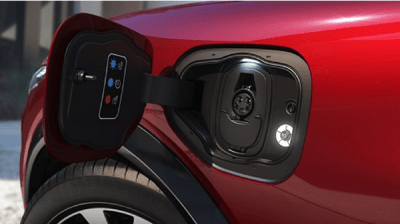2 min read
Should You Take an At-Home Genetic Test?
You have a hunger to know more about yourself and your family’s history or determine if you’re at greater risk for a life-altering affliction like...
Manage your everyday finances with convenient accounts, flexible cards, and personalized service designed to fit your life.
At First Federal Bank, we offer flexible mortgage solutions for almost any situation, helping you secure the right financing for your dream home.
Business banking offers secure financial management, streamlined transactions, credit options, and tools to help businesses grow efficiently and sustainably.
3 min read
First Federal Bank : July 6, 2022 4:00:00 PM EDT

 As gas prices go up and the auto industry steers toward full electrification, more people are considering buying an electric vehicle as their next car. But what is owning and driving an electric car like? Here are some of the pros and cons of electric car ownership, which may help you decide whether to jump on the EV ship:
As gas prices go up and the auto industry steers toward full electrification, more people are considering buying an electric vehicle as their next car. But what is owning and driving an electric car like? Here are some of the pros and cons of electric car ownership, which may help you decide whether to jump on the EV ship:
Charging stations and times
Most EVs have enough range to cover your daily commute, meaning you can charge overnight at home as needed. If you only drive a few miles a day, a standard electrical outlet may suit your needs, but you can have an electrician install a 240-volt outlet where you park your car for much faster charging. With this lifestyle, it may be a long time before you ever need to find a charging station and worry about charging times. However, on a road trip beyond the range of your EV, you’ll need to find a rapid charger. It is easy to do when you use a specialized app such as PlugShare. You can plan your route and bathroom/meal breaks based on the location of available chargers. While charging an EV is more time-consuming than refueling with gasoline, most modern EVs are able to charge to 80% in 25 to 45 minutes depending on the power the charging station provides, and the power the EV can accept. Many Level 3 rapid chargers are located near stores and restaurants. Unlike refueling with gasoline, you do not need to stay with your EV while it charges. You may also find 240-volt, Level 2 chargers at hotels and parking garages that add up to 20 miles of range for every hour of charging.
Driving comfort and enjoyment
Electric vehicles deliver a different kind of driving experience. Because there is no engine noise, they are much quieter than gas-powered cars, leading to a more serene ride. In many models, the regenerative braking technology may even enable you to slow down to a stop without using the brake pedal, further enhancing comfort. In addition, EVs are typically much more responsive than gas-powered cars. “Electric motors generate peak torque from a dead stop, so there is an immediacy to the power and acceleration that can’t be matched in a vehicle powered by an internal combustion engine,” writes Autoweek contributor Chris Teague. That said, drivers who enjoy the sound of an engine revving through its gear changes may find the driving experience of an EV to be subjectively less engaging.
Ownership costs
From fuel to maintenance, electric vehicles have lower running costs than gas-powered cars. According to a study by Consumer Reports, typical EV owners who do most of their fueling at home can expect to save an average of $800 to $1,000 a year on fueling costs over an equivalent gasoline-powered car. The same study also found that over the lifetime of the vehicle, the average EV owner saves about $4,600 on maintenance and repair costs compared to gas-powered cars. This is because EVs are less mechanically complex and do not require regular engine oil changes. The federal tax credit of up to $7,500.00 as well as local government or utility incentives may help reduce the initial cost of the vehicle. At this time only Tesla and GM no longer qualify for the federal credit. Finally, EVs are just as good as or better than their gas-powered counterparts at holding their value over time, making them valuable to owners intending to sell their car.
Reduced carbon footprint and fuel
Electric vehicles are more environmentally friendly than gas-powered cars. Even factoring in the manufacturing energy cost as well as their reliance on the electric grid — which may not necessarily derive its power from renewable sources — EVs are still expected to generate fewer harmful emissions over their lifecycle than gas-powered cars. “According to a model devised by the automotive consulting firm FEV, the life-cycle emissions of a small gas car will surpass those of a small EV after roughly 27,000 miles of driving,” writes Annie White, associate editor for Car and Driver. Buying a used EV is an especially good way to offset its carbon debt.
On the sum of it, there are more advantages to owning and driving an EV than disadvantages. And as manufacturers make increasingly more attractive, fast-charging EVs — and as the amount of electricity from renewable sources goes up — their appeal can only rise commensurately.

2 min read
You have a hunger to know more about yourself and your family’s history or determine if you’re at greater risk for a life-altering affliction like...

Whether you’re looking to lose weight or improve your health in the long term, cutting refined sugar out of your diet is a great place to start. By...

Much of the U.S. has been dealing with extreme heat this summer. We all know the dangers this kind of weather poses to our physical health. But what...
Manage your accounts, make payments, and more.
Open an account with us.